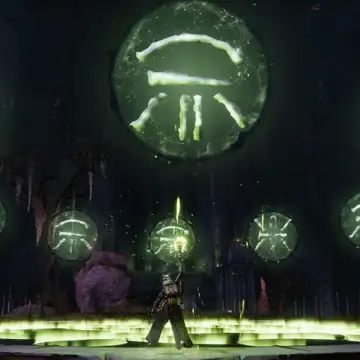Destiny 2
You can’t even get three people that understand how this part works
While I am enjoying Season of the Witch in Destiny 2, and I think you can possibly make the case it may be Destiny’s best individual season ever, it does contain one recent trend that I have very much disliked the last two seasons, something that Destiny has done on and off for ages, but it’s more pronounced in these activities.
I’m talking about the idea that Destiny 2 fireteams, ones that are not communicating using anything but maybe emotes, are supposed to come together and decide on the difficulty of a given activity. In this instance, I’m referring to the fact that Season of the Witch is trying to have players agree on whether they should be making Feeble, Robust and Powerful Offerings during Altars of Summoning.
Here, it’s the first person who jams an offering in an offering slot, which can have deeply annoying results. But it’s also hard to blame them because how else is it supposed to work? Someone has to pick.
With Altars of Summoning, Feeble Offerings are pointless because they’re cakewalk but move the progress bar so little they’re not worth doing at all. Powerful Offerings are the opposite, unless you know you’re working with a good team who knows about all the buffs and card decks and quality builds for the season, you are probably going to get stomped endlessly if it’s just you who’s ready (and maybe you’re not ready). But people pick it anyway. In my experience, you can’t really go wrong with Robust offerings, moderate difficulty with moderate bar progress. But the whole system is rather borked.
Destiny 2
Bungie
This is similar, but also sort of a mirror of Season of the Deep, where it wasn’t one person picking difficulty for Deep Dives, you had to get all three players to do the Toland Orb every section, which was close to impossible without LFG-ing and specifically telling people to do it. And even then, you constantly got teams that weren’t ready for it (then there was a whole separate issue about people running off to do the exotic quest at any given time).
To me, this is the evolution of the game doing this ages ago. Things like Tier src-4 Blind Wells where again, it was whoever jams the thing in first. But eventually that became so easy everyone knew to just do the highest one. It’s also a similar philosophy to turning public events heroic, which sometimes can be done by just one person, but often other players will screw it up. That stopped being relevant when public event rewards became trash, but still.
I just don’t know why we’re set on doing this system, where players don’t talk so one rando picks an arbitrary difficulty, or conversely, you have to get three people, also not talking, to agree to increase difficulty. This is why we have set difficulties for things like story missions or Nightfalls or dungeons or raids. You know what you’re getting. Everyone who shows up knows what they’re getting. You’re not just loading in and someone’s suddenly like “hey actually let’s make this a Grandmaster (flips the Grandmaster switch).” If you’re not doing that there, why is it good to do in seasonal content? Some seasonal things do just have Legendary mode where the difficulty is known, albeit I would argue these are the ones that need matchmaking, but don’t have it. It’s very funny(?) that a Legendary clear of Savathun’s Spire would be much easier with matchmade randoms than a Powerful Offering Altars round most of the time.
Anyway, it’s not the biggest of deals, but something I’ve noticed now for two seasons, and I hope it stops. No one like relying on strangers to make something easier or harder arbitrarily, we should always know what’s up going in.
Follow me on Twitter, Threads, YouTube, and Instagram.
Pick up my sci-fi novels the Herokiller series and The Earthborn Trilogy.

Comments are closed